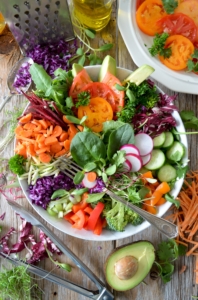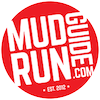Basic Information for the Endurance Athlete
Whether you have signed up for a half marathon, a Spartan Beast, a marathon, an ultra trail run or an ultra beast, nutrition and gear will both play an important role in your training protocol. Without proper nutrition, you are guaranteed to hit a wall that will end your race before you even hit your stride. Without proper gear, you may encounter chafing, blisters or run out of space for your hydration or on course nutrition. Below are some basic tips for helping you to prepare for an endurance event.
- It sounds redundant, but you have to start eating healthier overall. Track your macronutrients (carbs/proteins and fats) on an app like myfitnesspal.
- Endurance athletes need to consume 50-60% of their total calories from carbohydrates. Research has shown that intaking carbohydrates 4 hours before a training event or a race may reduce muscle breakdown.
- You will also need to watch your protein needs. Endurance athletes need to consume 1.2-2kg/day. Post training protein consumption can make a major difference in muscle recovery. Aim for 20-25g of protein within 30 minutes of your training.
- Total fat percentage for an endurance athlete is anywhere from 20-35%. If you are encountering GI issues during your training sessions, you may want to aim for closer to the lower end of that recommendation.
- If you are running or racing for more than 60 minutes, you will need to intake carbohydrates to maintain blood glucose levels. 30-60g of carbs per hour should do the trick. 16-32 oz of a drink like tailwind nutrition, a few energy chews or 1 energy gel, such as honey stinger are great options for on course nutrition. It may help to change up the combination of supplements on longer runs to keep things interesting. It’s funny how you will start to look forward to chewing something after 2 hours of running. Even if you are not feeling hungry, it is pertinent to consume some form of nutrition every hour, or you can split your nutrition in half and consume something every 30 minutes. Practice your nutrition during your training runs to avoid GI distress on the course.
- You will need to purchase a few items that are necessary for those long runs.
- A hydration pack. There are a ton of options out there, I personally own a Nathan vest and a Nathan belt. You may prefer one of the other, ask if you can borrow a friends to see which you prefer.
- Body Glide is very important in order to prevent chaffing.
- Proper running shoes are a must! Head over to your local running store and have them fit you for the perfect pair. A good store will analyze your gait and make recommendations based on your individual needs.
- Compression socks are not for everyone, but I personally feel the difference when I wear them. They help with circulation, cramp and blister prevention and even foot pain.
- Moisture wicking shorts, shirts, bras, and hats. Find your favorite brand and buy a new running outfit!
- Hydration is one of the most important things to pay attention during a long training session or race.
- The rule of thumb is to take in 3-5 sips of water every 15 minutes, even if you are not thirsty.
- As a guideline, you should not take in more than 600ml of water/sports drinks per hour of running.
- The day before a long training run or the day before a race it is important to have a larger carbohydrate based meal around lunch time and then a smaller meal before bed. If you are struggling with GI issues, reduce your fiber intake a few days before your training run or race. Your breakfast should have at least 100g of carbohydrates. Plan on eating 3-4 hours before your race and consume about 16-32 oz of water at that time as well. You know your body best, so if you can handle a cup of coffee with a bagel and some peanut butter, then go for it! If you are queasy and nervous before a race, it may be best to skip the coffee and go for a plain cup of oatmeal and a piece of fruit. The hour before your training run or race you should take a few sips of water every 15 minutes and consume a gel or an orange to give you that final burst of energy.
For reference:
- 1 Banana: 24-30g carb
- Energy Gel: 21-30g carb
- Energy Bar: 20-40g of carb
- 4-5 energy chews: 16-25g carb
- 1 bagel: 50-60g carb
- 1 orange: 11g carb
- 1 cup of oatmeal: 25-30g carb
- Prepare for the unexpected. On the course, I always carry a few small storage bags that contain the following items:
- 3 anti-inflammatory pills. There is mixed research on taking anti-inflammatory medication on the course, so be sure to check with your physician to see what they recommend.
- 3 salt tablets for cramping. You can also purchase pickle juice shooters, but they take up a lot more space in your hydration pack.
- 2 dissolvable anti-nausea pills for unexpected GI issues.
- Extra blister band-aids for unexpected blisters.
This information can certainly feel overwhelming, but the more prepared you are, the better you will perform. Good luck out there and don’t forget to practice using all of your gear and nutrition before race day!







Leave A Comment